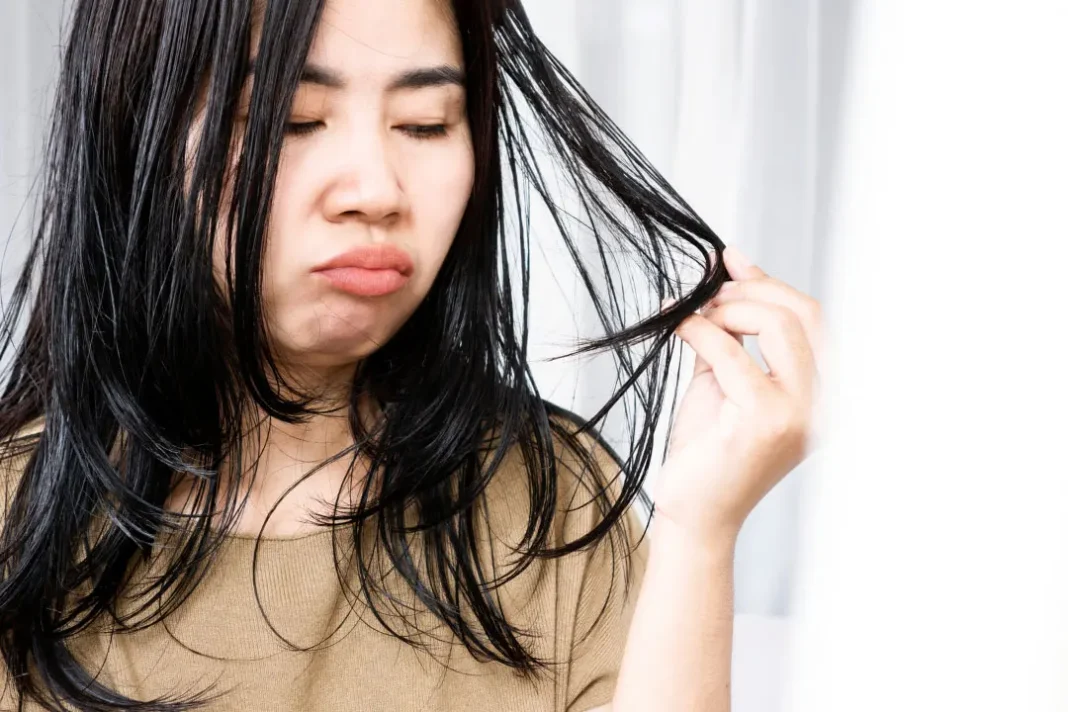Dealing with menopause and hair thinning can be overwhelming, but there are steps you can take to manage it. Ensuring that your hair is well taken care of is crucial and can help you feel more confident. With the right mindset and approach, you can navigate this new phase of life with ease and embrace the changes that come with it.
Menopause is a natural part of the human lifecycle, but it brings some body changes that are often unwelcome. Diagnosable a year after your last menstrual period and usually occurring between the ages of 44 and 55, it results in a total shutdown of the ovaries’ hormone production. The ovaries also stop releasing eggs into the fallopian tubes, effectively ending your ability to have children post-menopause.
Symptoms include hot flashes, mood changes, sleep interruptions, low energy, and in many cases, hair loss. While menopause is inevitable, it is temporary, and symptoms should clear up after the menopausal transition. However, this can take years, and treatments exist to relieve many symptoms.
You May Also Like:
Stem Cell Therapy for Hair Loss: Pros and Cons
Unlock the Secret to Thicker Hair: How to Unclog Hair Follicles on Your Scalp
Breaking the Silence: Understanding the Connection Between Menopause and Hair Thinning is an original (HerHealthWatch) article.
Menopause and hair thinning:
Why does it happen?
During the menopausal transition, the ovaries cease to produce the reproductive hormones estrogen and progesterone. Hormones send signals to the body in various biological processes, including hair growth. As a result, there’s a common myth that the hormone testosterone is directly responsible for hair loss, an oversimplification of its role in the process. In particular, the amount of estrogen and progesterone available and the metabolism thereof can affect the thickness and growth of your hair. In menopause, hair thins because the body has less estrogen and progesterone; these hormones signal the proper growth rate and thickness. Thin hair is weak, so it tends to grow slowly and fall out more easily, resulting in menopause-related hair loss.
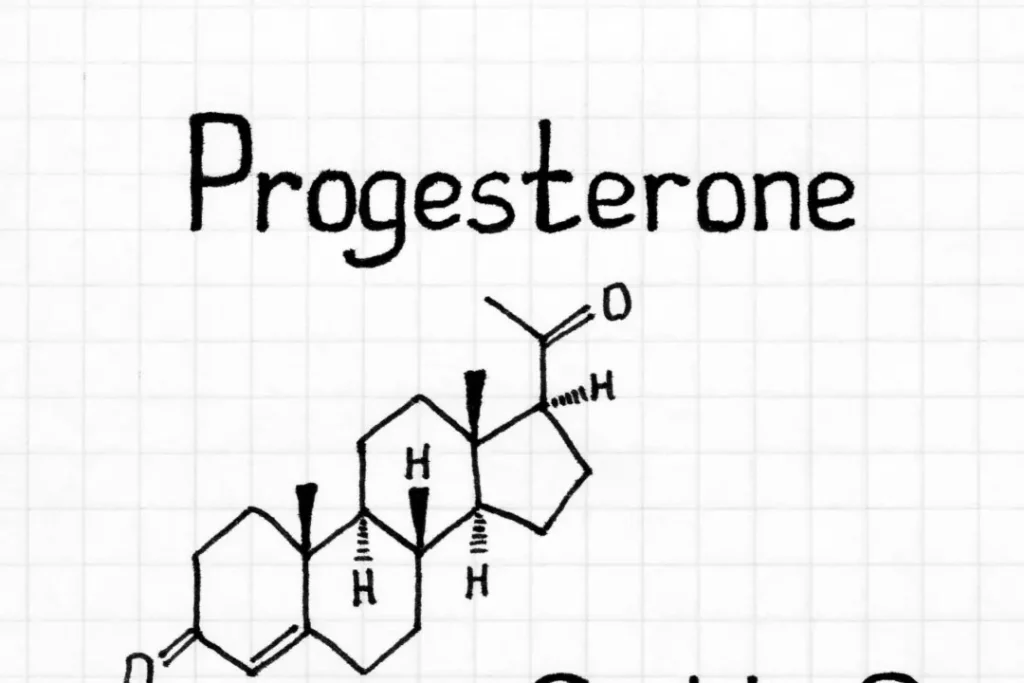
Menopause and hair thinning:
What are the signs and symptoms?
The most apparent symptoms of hair loss during menopause are hair falling out or having less hair on your head. Those concerned about menopause-related hair loss should check their hair brushes, shower drains, and hands after touching their scalps or anywhere else hair is wont to accumulate. If there’s more than usual, they may be experiencing menopausal hair loss.
Many have heard the term “male pattern baldness.” Male pattern baldness refers to the specific areas of the scalp where age-related or genetic hair thinning typically begins in men: around the hairline, especially at the corners, and at the crown of the head. Female pattern baldness also exists, and menopausal hair loss is more likely to follow that type of thinning.
Female pattern baldness covers the entire scalp, with widespread thinning throughout your whole head of hair. It may look as though wider spaces have appeared in between your hair’s locks. It tends to be especially noticeable near the hair’s middle part, with the natural part widening as hair loss progresses. This appearance is often known as the “Christmas tree pattern” because it resembles a traditional pine tree’s wide, pointed boughs. Regardless of gender, everyone experiences thinning hair around the temples as they age, so that’s less likely to be a sign of menopausal hair thinning.
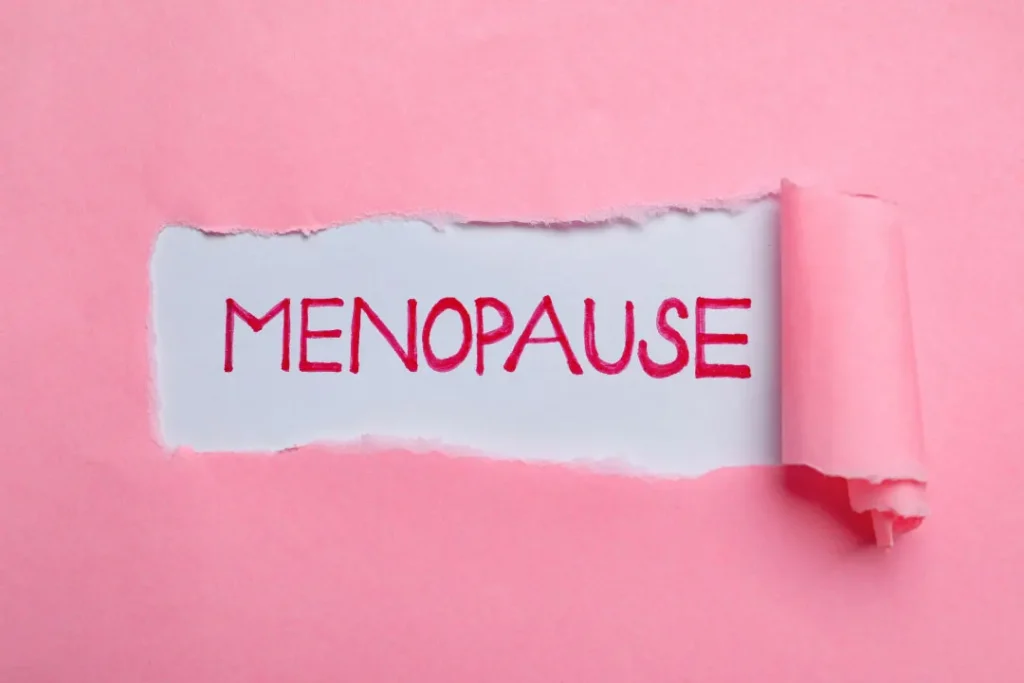
Menopause and hair thinning:
The emotional impact
Menopause is known to cause emotional effects similar to premenstrual syndrome. Irritability, anxiety, and depression are common. Hair loss similarly impacts mental health and can cause stress, anger, depression, withdrawal, lower confidence, and embarrassment. Hormonal changes cause the emotional effects of menopause. While hair loss isn’t the direct cause of these symptoms, it certainly doesn’t help. Menopausal hair loss can further diminish your confidence and damage your emotional state during what may already be an emotionally fraught time. Therefore, many choose to seek treatment for the symptoms of menopause, and that includes hair loss.
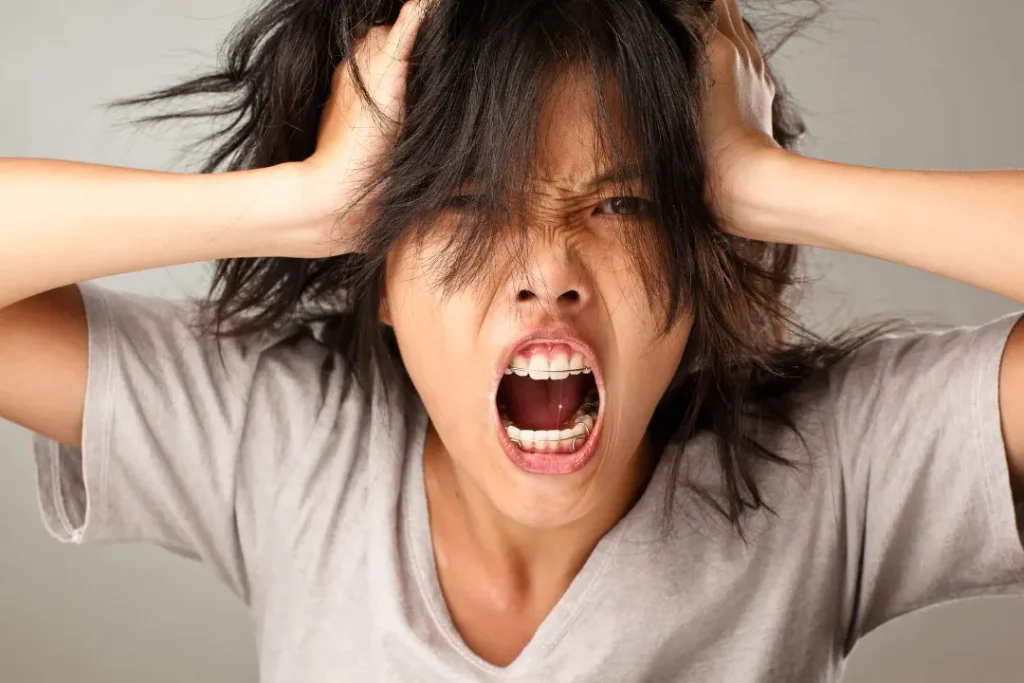
Menopause and hair thinning:
Treatment options
There are a variety of options for treating menopause-related hair loss. The two most common prescriptive treatments for hair loss are Finasteride and Minoxidil. However, neither is a perfect remedy. Finasteride treats hair loss by increasing the circulation of the hormone testosterone throughout the body, preventing it from turning into dihydrotestosterone, which can kill follicles. Finasteride can have some unpleasant side effects due to its interactions with hormones. It may cause further changes in mood, sexual dysfunction, or increased body hair growth. It also requires permanent treatment; stop taking Finasteride, and hair loss will eventually resume.
Minoxidil stimulates the hair, causing it to exit the telogen phase – a state of rest – and enter the anagen phase – a state of growth. Minoxidil may also have side effects, including scalp dryness and itchiness, increased facial hair growth, and vision changes. In some cases, it even causes more hair loss. Like Finasteride, you can’t stop taking Minoxidil, or hair loss will continue.
Lifestyle changes are a common recommendation for the treatment of menopausal hair loss. A better diet, less stress, cessation of smoking, or the right hair products provide hair and follicles with more nutrients, which could help increase their overall health and, in some cases, restart healthy growth. However, recall that the changes in hair growth that result from menopause occur on the hormonal level and that the ovaries cease to produce hormones during menopause. These lifestyle changes may improve your chances of healthy hair growth but are far from a sure remedy.
Therefore, standard treatments for hair loss, menopausal or not, are flawed. Thankfully, there exists an alternative in the form of stem cell therapy. There is a connection between stem cell health and hair – research has demonstrated that once stem cells in follicles die, the follicles are soon to follow. Stem cell therapy, then, addresses this root cause of hair loss.
More Hair Naturally is a definitive source of stem cell therapy for hair loss. Unlike drugs, More Hair Naturally is designed to be a temporary treatment; once your hair is growing healthily, you may be able to stop using it. More Hair Naturally offers free consultations for prospective users, recommending the ideal treatment plan depending on your symptoms and goals. CEO Maryah Shain says, “We want to set everyone up to succeed, so we need to know where people are at so we can establish realistic expectations of what they need moving forward.”
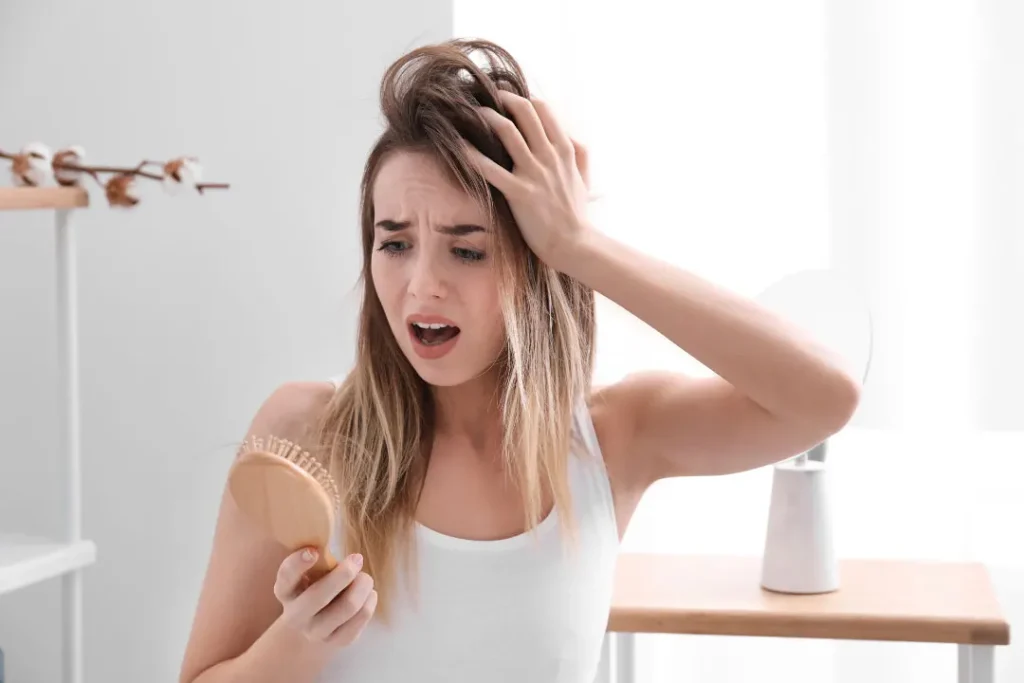
Menopause and hair thinning:
A treatable symptom
Menopause can be a trying experience. It can feel like you’re losing control of your body, symptoms, or aging. While it is perfectly natural, it can’t be stopped or reversed. However, there are options for treatment, especially for menopausal hair loss, and those options don’t have to be permanent. Stem cell therapy for hair loss and other treatments for menopausal symptoms can help you take back control, allowing you to regain your confidence and maintain a positive outlook.
For further reference:
Harvard Health Publishing: Treating female pattern hair loss
NBC News: Half of older women have hair loss, study finds
Northwestern Now: Stem cells lose their ‘glue’ and escape from hair follicle to cause hair loss
Important Note: The information contained in this article is for general informational purposes only, and should not be construed as health or medical advice, nor is it intended to diagnose, prevent, treat, or cure any disease or health condition. Before embarking on any diet, fitness regimen, or program of nutritional supplementation, it is advisable to consult your healthcare professional in order to determine its safety and probable efficacy in terms of your individual state of health.
Regarding Nutritional Supplements Or Other Non-Prescription Health Products: If any nutritional supplements or other non-prescription health products are mentioned in the foregoing article, any claims or statements made about them have not been evaluated by the U.S. Food and Drug Administration, and such nutritional supplements or other health products are not intended to diagnose, treat, cure, or prevent any disease.

